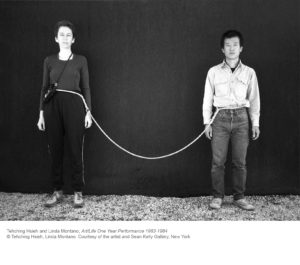This project works to understand what it means to wait in the current moment by uncovering how distinctive forms of suspended, delayed, and seemingly redundant time have emerged alongside the technologies, desires, and fears of the nineteenth, twentieth, and twenty-first centuries. Understanding the experience of waiting as always both existential and historically situated, the project looks at three core elements that underpin experiences of time in the period from 1860 to the present in Europe and North America: war; work; health.
The first section concerns the emergence of industrialised war alongside modern time regimes structured by increasing mechanisation and new communication technologies. It asks how these technologies led not to the efficient use of time in conflict but to experiences of profound temporal suspension, boredom, and anxiety: experiences of waiting. This section tracks delayed and impeded time in literary texts and historical and clinical accounts of lived experiences and relates them to new fears and experiences of ‘total war’ in military and civilian populations. Against dominant philosophical accounts of waiting as a form of solitary, existential crisis, the research also uncovers how waiting withothers becomes a crucial mode and practice of care when what people are waiting for can hardly be brought to consciousness.
Section two examines how waiting gets figured and represented in relation to the labour of modern times. Waiting is sometimes represented as redundancy and inefficiency in a world of increasing speed and productivity. But industrial and post-industrial working practices both produce significant experiences of waiting, in fact: experiences of time that complicate the distinctions between work and leisure on which capitalist modes of production and time are seemingly based. Using literary, philosophical, and historical texts, the research examines experiences of waiting within work, waiting for work, and the waiting of domestic labour that sustains, cares for, and reproduces working bodies. It explores how redundant time can be experienced as neglect and abandonment, but how shared practices such as queuing, striking, squatting, and civil disobedience can give waiting a resistant force that represents a care for the future.
The final section works explicitly to draw these insights into dialogue with questions of health and well-being. Building on the general insight that waiting represents one of healthcare’s core experiences, the research focuses particularly on the emergence of the significance of the categories of chronic illness and disability in modernity. Increases in chronic conditions are clearly linked to the success and efficiency of modern medicine in treating communicable diseases; nevertheless, chronic illness significantly challenges the systematised delivery of biomedical regimes of care. Exploring both mental and physical illness across poetry, fiction, and narratives of lived experience, this section works to track the specific ‘disordering’ of temporal experiences in chronic conditions and to understand their complex and tense relation to modern time regimes. The research also works to unpack the relationship between categorisations of chronic illness and disability, analysing how experiences of time and duration work within such definitions, and how temporal conditions of suspension, persistence, delay, and waiting articulate both the problems and possibilities for experiences of ‘timely’ care.
Project Lead: Laura Salisbury, Professor in Modern Literature and Medical Humanities at University of Exeter


